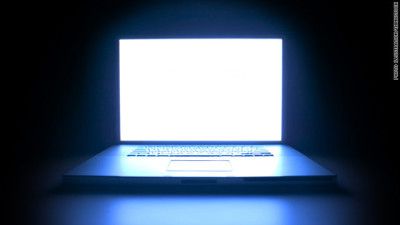- Qualcomm Launches Snapdragon 4 Gen 2 Mobile Platform
- AMD Launches Ryzen PRO 7000 Series Mobile & Desktop Platform
- Intel Launches Sleek Single-Slot Arc Pro A60 Workstation Graphics Card
- NVIDIA Announces Latest Ada Lovelace Additions: GeForce RTX 4060 Ti & RTX 4060
- Maxon Redshift With AMD Radeon GPU Rendering Support Now Available
Trouble Sleeping? Your Gadgets Could be to Blame
Are you able to remember the last time you had a truly good night’s sleep, and woke up feeling refreshed and renewed? If it’s been so long that you can’t even remember, it could be that you fall asleep with a bright gadget in your face. At least, that’s J.D. Moyer’s theory, which he came to strongly believe after trying a few experiments that effectively tricked his mind.
As the story goes, Mr. Moyer suffered from sleep-deprivation, and he wondered if his gadgets and electronics could have been to blame. There is some scientific proof that light can drastically affect how your brain handles certain situations, and the theory is that because many people fall asleep using a notebook or mobile phone, the light from the gadget essentially tricks their minds into thinking it’s daytime, when of course it isn’t.
Because of this brain trickery, it’s believed that those affected will be unable to sleep as soundly as if they had just gone to sleep in total darkness, with minutes separating the last time they had light of any sort reach their eyes. Mr. Moyer took his experiment to the extreme, by actually unplugging every source of light in his house before bed – even his fridge light.
The result? For the first time in a while, he was able to sleep soundly, and woke up feeling well-rested each morning. The effect was so profound, that he simply was a happier person with a perkier attitude. As it stands, many scientists believe that this isn’t a joke, and the effect of light on the human brain is real.
If you happen to be a problem sleeper, you may actually want to take this seriously. Personally, the PC is the last thing I see minutes from bed and I certainly have no trouble falling asleep and staying asleep, but it seems reasonable to believe that like most conditions, some will experience it, and some will not. There is more research to be done, but as it is, this is definitely an eye-opener.

Such concerns are not entirely new: One sleep researcher said Thomas Edison created these problems when he invented the light bulb. But they’ve been revived by the popularity of Apple’s new slate computer, the iPad, which many consumers say is good for reading at night in bed, when the brain thinks the environment should be dark. Unlike paper books or e-book readers like the Amazon Kindle, which does not emit its own light, the iPad’s screen shines light directly into the reader’s eyes from a relatively close distance.




